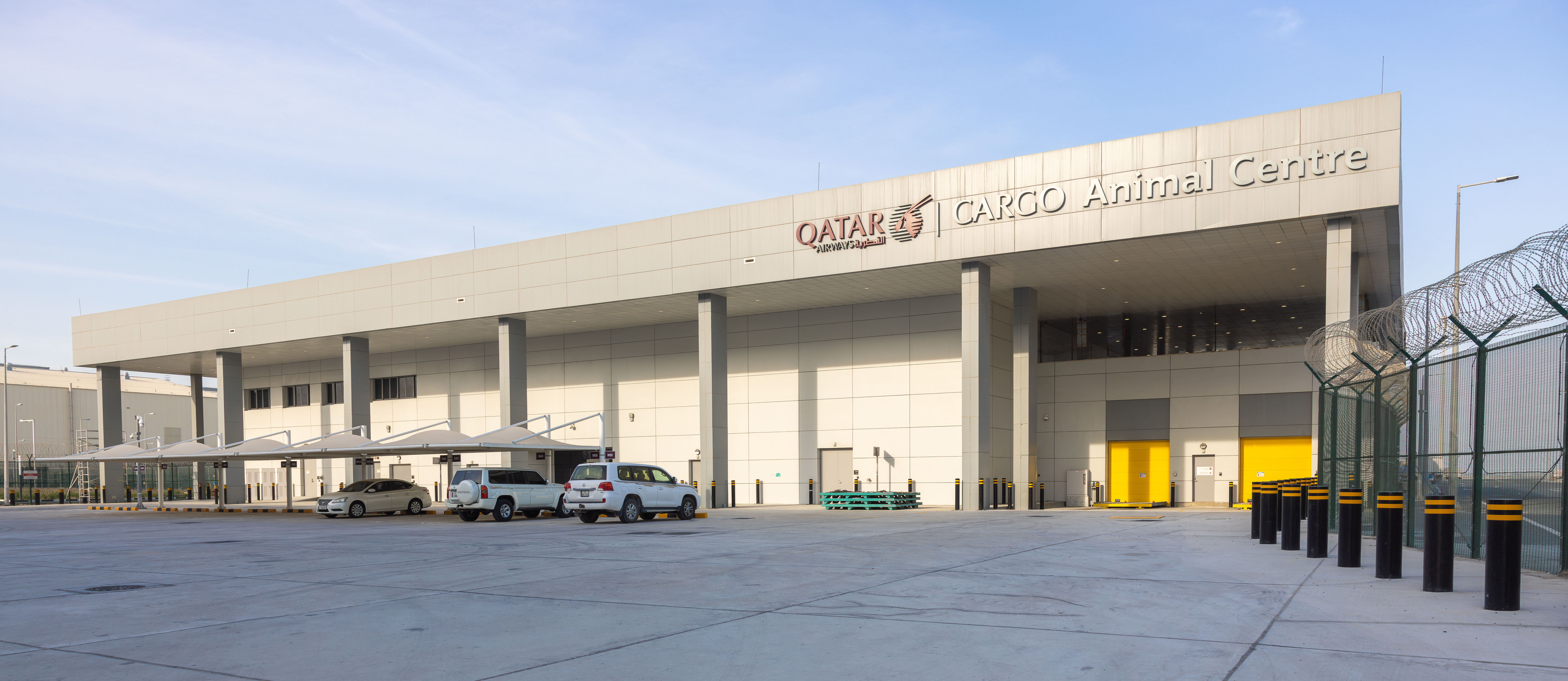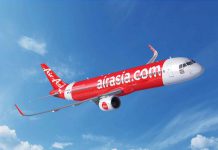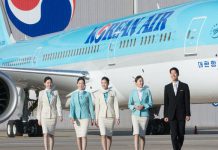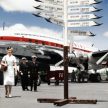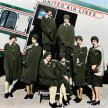Chocolate, chilli, and herbal tea are among the ways scientists are helping passengers battle jet lag and cope with the marathon Qantas Boeing 787 Perth-London flight and arrive more refreshed.
New dining and refreshment choices unveiled Thursday combine research from the University of Sydney’s Charles Perkins Centre and the in-house experience of Qantas and celebrity chef Neil Perry’s Rockpool to develop dishes that encourages sleep at optimal times during the flight.
They include a herbal tea developed by Qantas and tea producer Dilmah that has lemon verbena chamomile and lemongrass to encourage relaxation.
A hot chocolate bedtime drink combines warm milk and chocolate with the sleep-inducing amino acid Tryptophan aimed at helping the body’s sleep cycle.
Some dishes feature ingredients that promote hydration — green leafy vegetables, cucumber, strawberries and celery — while others have probiotics to assist digestion.
Healthy “poke” bowls offer lighter meal options such as tuna salad and specific ingredients such as chilli are tailored to times of the day. Chilli disrupts sleep so it’s avoided at night but can help people wake up in the morning.

“Working with clinical sleep specialists, nutritionists and metabolic scientists, we’ve designed new menu options using delicious ingredients that have added benefits of hydration, aiding sleep and reducing jetlag,” said Perry, who is the airline’s creative director of food, beverage & service.
“The menu we are trialing on the Perth to London route will continue to offer a selection of customer favorites but it has some special ingredient additions and exclusions.”
Read: Qantas is all smiles with the 787.
Charles Perkins Centre academic director Stephen Simpson said the new menu incorporated the latest scientific knowledge on nutrition and hydration.

Professor Simpson said the centre’s team had trawled through the scientific literature to find evidence of food or nutrients in food that could either support the promotion of sleep or help to wake people.
“A couple of things we’ve found out that seems to be well supported by the evidence is that if you want to promote the onset of sleep then a combination of Tryptophan, which is one of the amino acids found in proteins, with carbohydrates is the best way,’’ he said.
The scientist said the Tryptophan was needed by the brain to make the key hormones serotonin, which is involved in sleeping, and melatonin, which is used by the main body clock.
“Crossing the brain involves it having to be transported in from the blood supply and that process is helped if you ingest high Tryptophan with carbohydrates,’’ he said. “So here’s a classic example: we have chicken, which has very high Tryptophan levels, coupled with red rice, which is a carbohydrate.’’
The Charles Perkins Centre scientists are now keen to take the next step involving trials with a group of Frequent Flyers using wearable technology.
The technology will be combined with apps designed to collect data on sleeping and activity patterns, mental state, eating patterns and hydration before, during and after their long-haul flight.
The study will bring together researchers across fields such as nutrition, physical activity and sleep to map out strategies to counteract travel bugbears such as jet-lag.
It will look at issues such as on-board exercise and movement, menu design and service timing, pre- and post-flight preparation and transit lounge “wellness”.
An examination of the cabin environment will also look at how factors such as lighting and temperature affect passengers.
Professor Simpson believes there is a potential for “extraordinary health, science and engineering discoveries and innovations” to come out of the partnership that could have wide-ranging benefits.


